BEIJING, April 5 (Xinhua)-After the United States announced the list of suggestions for imposing tariffs on products based on the 301 investigation in China, China countered on April 4 and announced that it planned to impose tariffs on American soybeans, automobiles, chemicals, airplanes and other commodities. At the same time, sue the WTO for the US tax proposal.
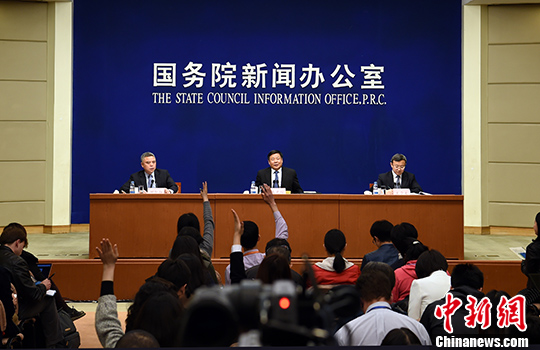
On April 4th, the State Council Press Office held a briefing in Beijing. Vice Minister of Finance Zhu Guangyao and Vice Minister of Commerce Wang Shouwen introduced the Sino-US trade and answered questions from reporters. China News Service reporter Zhang Qin photo
What are the considerations for including soybeans in the Chinese list? Is it possible for the two sides to negotiate to resolve the friction? Can China afford to fight and win? Will China reduce its holdings of US Treasury bonds to fight back? At the briefing held by the State Council on the 4th, officials from the Ministry of Commerce and the Ministry of Finance of China responded to some key issues of concern to the outside world.
China announces measures to counter the list of tariffs that the United States intends to impose on Chinese goods.
On the 3rd local time in the United States, a list of suggestions for imposing tariffs on China was released, which will impose a 25% tariff on 1,333 US$ 50 billion goods exported from China to the United States, involving aerospace, communications, medicine, machinery and other fields.
In this regard, China quickly announced reciprocal trade countermeasures on the afternoon of the 4th, which will impose additional tariff measures on imported goods such as soybeans, automobiles, chemicals and airplanes originating in the United States, with a tax rate of 25%, involving China’s imports from the United States of about 50 billion US dollars in 2017.
On the same day, China also filed a consultation request under the WTO dispute settlement mechanism on the taxation proposal under the US 301 investigation against China, and officially started the WTO dispute settlement procedure.
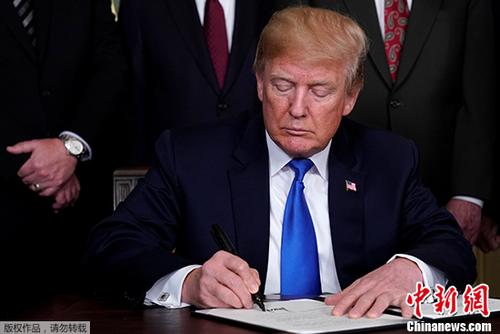
On March 22, 2018, US President Trump signed a presidential memorandum in Washington, D.C., according to the results of the "301 investigation", large-scale tariffs will be imposed on goods imported from China, and China enterprises will be restricted from investing in the United States for mergers and acquisitions.
Is there any possibility of further negotiation between the two sides?
— — Fight, accompany to the end; Talk, the door is open.
"China’s approach is forced and restrained." Wang Shouwen, Vice Minister of Commerce, said that China is unwilling to fight a "trade war" because there is no winner in the "trade war". But they are not afraid of a "trade war". If someone insists on a "trade war", China will accompany them to the end.
Wang Shouwen said: China’s consistent position is that the door to solving problems through negotiation and consultation is always open. If the US side is willing to talk, China is willing to hold consultations on the basis of equal consultation and mutual respect to resolve differences. So to put it simply, if someone insists on fighting, China will fight to the end, and if someone is willing to talk, the door is open.
What are the considerations for including soybeans in the Chinese list?
— — The table of contents and related order are well founded.
"China was forced to put forward the relevant product catalogue as a counter-action, and this catalogue and related order are based." Zhu Guangyao, Vice Minister of Finance, said that US soybean exports to China accounted for 62% of all US soybean exports. In 2017, US soybean exports to China were 32.854 million tons, accounting for 34.39% of China’s total imports. The export volume was too large, and farmers who planted soybeans in China made demands to relevant associations.

"U.S. government subsidies have affected the interests of soybean farmers in China. The China government should respect the demands of farmers in China and the policy demands of the China Soybean Association. So in this respect, soybeans are used as an option for this counter-measure. " Zhu Guangyao said: at present, none of these product catalogues have come into effect. Both sides have put the issues on the table. Now it is time for negotiation and cooperation. The premise of negotiation and cooperation is mutual respect, rather than imposing conditions on the other side.
Can China afford to fight and win?
— — China will not yield to any external pressure.
Zhu Guangyao said, despite repeated communication between the two sides, China must take actions to defend China’s own interests when the US still insists on its own way and issues a high tariff list of $50 billion. I hope that both sides can treat each other honestly and respect each other, and negotiate on the principle of win-win cooperation.
Zhu Guangyao stressed that if the United States continues to go its own way, China has never given in to external pressure since the founding of New China. This is the history of the development of New China and the struggle of Chinese people, and China will not give in to any external pressure.
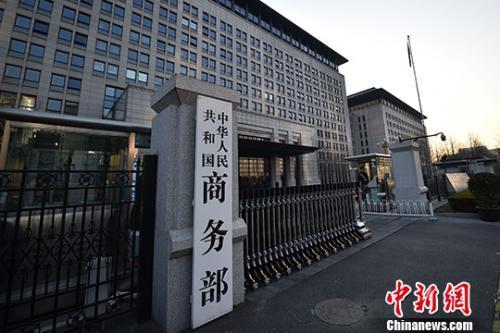
This "trade war" between China and the United States was initiated by China?
— — False news The US accusation is groundless.
Some media said that the "trade war" between China and the United States was provoked by China, because China took such actions as compulsory technology transfer, which was unfavorable to intellectual property protection.
"That’s fake news!" Wang Shouwen said that in the "301" investigation report, the United States accused China of "compulsory technology transfer", which was unfounded. There is no law in China that requires foreign enterprises to transfer their technology to China partners, and there is no law to make such a requirement.
Wang Shouwen emphasized that China’s protection of intellectual property rights is very firm and has made great achievements. It is totally unacceptable for China to take discriminatory measures against China that violate its WTO commitments and its domestic laws just because of some unwarranted reports, accusations and complaints from individual enterprises. Who is the initiator of the "trade war" is self-evident.
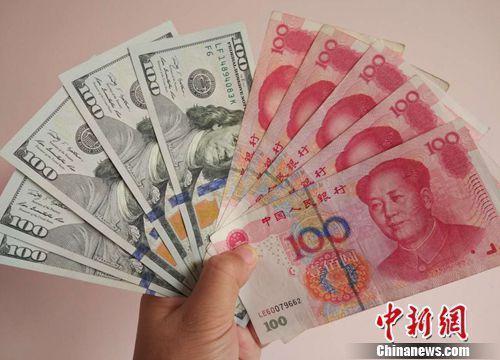
In the past year, the RMB has continued to appreciate. On March 28th, the central parity of RMB against the US dollar hit a new high in 2015. Li Jinlei photo
Will China reduce its holdings of US Treasury bonds to fight back?
— — China is a responsible investor in the international capital market
Zhu Guangyao said that China does have more than $3 trillion in foreign exchange reserves, which are the property of the people. The operation principle of China’s foreign exchange reserves is firstly safety, secondly liquidity and thirdly moderate profitability.
"China is a responsible investor in international capital market." Zhu Guangyao emphasized that China operates its foreign exchange reserves through market operation in accordance with market rules, specific market principles and diversified principles.
What do you think of the US demand for China to reduce its surplus by $100 billion?
— — It is unacceptable and impossible to reduce the surplus, which requires the efforts of both sides.
"It is absolutely unacceptable for China to reduce the surplus of $100 billion," Wang Shouwen said. First of all, it is impossible. The trade surplus and deficit are determined by market forces and the overall economic policy and structure of the United States, and China alone cannot reduce the surplus.
Wang Shouwen said that it is unacceptable because reducing the surplus requires the efforts of both sides, and it is not just one company that can reduce the surplus. It is hoped that the US can relax the export control of high-tech products to China and increase the domestic savings rate. It is also hoped that the US can actively respond to some measures taken by the China administration to expand imports.
He stressed that only through the joint efforts of both sides can the trade surplus or deficit be gradually eased, and it is not feasible to determine any absolute figure, artificial government intervention, in practice or in theory.
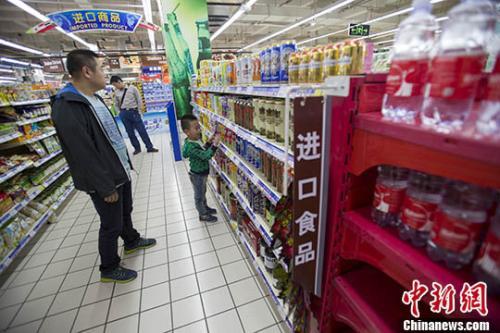
Will trade friction affect China’s GDP growth target?
— — China’s economy has maintained steady growth in recent years.
Zhu Guangyao said that China’s economy has maintained steady growth in recent years. The International Monetary Fund has continuously raised the economic growth rate of China, and predicted that the economic growth of China will be 6.6% in 2018, which is higher than the 6.5% development target of China predicted in the Government Work Report.
Zhu Guangyao said that China does not want a "trade war" between China and the United States, but it is now threatened by serious trade friction. Both sides should calm down, explore new paths on the premise of mutual respect, and gradually realize the change of trade imbalance in the process of cooperation. (End)